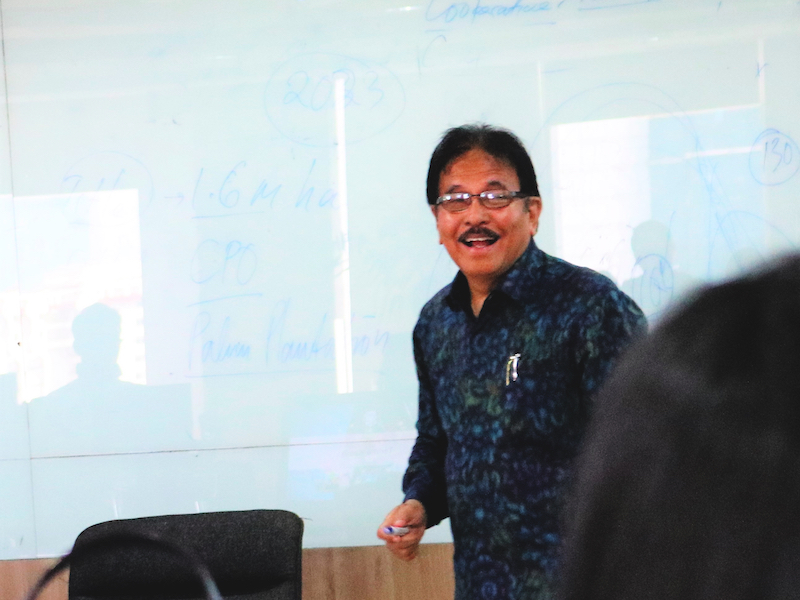Optimism was clearly emerged during the session of Minister of Agrarian and Spatial Planning, Sofyan Djalil, at TK Low Series of Seminar: Land Reforms and Economic Development in Indonesia at Jakarta Campus (19/2/2018). The optimism, said the minister, is due to the fact that the Indonesia’s economic development is currently on the right track. “If the economy keeps growing at the current trend, it is expected that Indonesia will be the fifth largest economy in the world by 2030, and the fourth largest by 2045,” added Sofyan.
The keys to attain that goal are to create inclusive economy by implementing some reforms including the land reforms program. The minister explained that the main goal of the land reforms is to certify 126 million parcel of land across the country by 2025 so that the economy can grow. Currently, from that of the total, only 46 million of parcel of land had been certified. The current administration has targeted to distribute land certificates for the remaining 80 million land parcel in the next few years. Sofyan admitted that this is a challenging job for his ministry, but this program is crucial to spread the economic development across the country and to increase the social welfare.
The challenge for this land reforms now is to speed up the distribution of the land certificates to the people who deserve the certificates. Bureaucratic reform is also mandatory to change the mindset of the bureaucrats to serve the people. Minister Sofyan admitted that in the past his institution was renowned for its rampant corruption practices. “But now I can guarantee that such corrupt practices have been eradicated, and now my staffs have better mentality,” said the Minister.
Opened by Deputy Director of Jakarta campus, Yudo Anggoro, the public seminar was attended by students who want to learn about the policy initiatives from the current government to create welfare for the society. Students were enthusiastic to ask the Minister about his policy, and the discussion was so productive. This seminar is an example of government-university collaboration in discussion current issues in the country.




